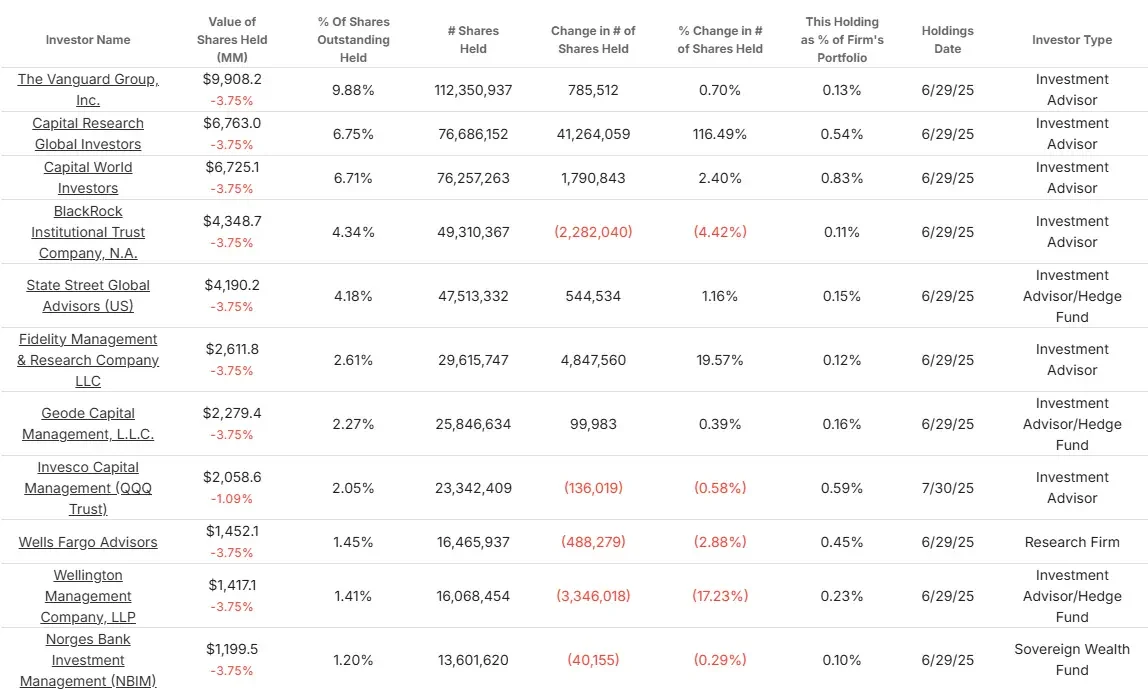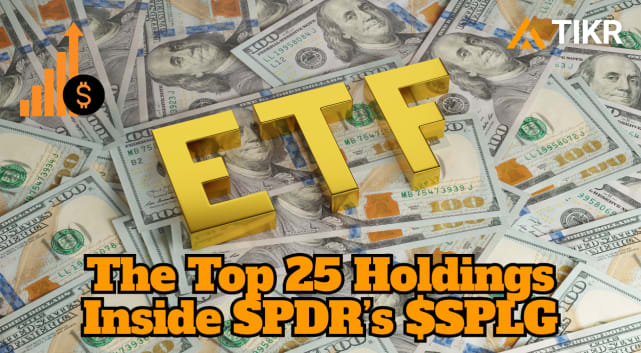Starbucks (NASDAQ: SBUX ) is the world’s largest coffeehouse chain, serving coffee, drinks, and food to millions of customers every day. Starting with a single store in Seattle, Starbucks has grown into a global brand with a recent share price of about $88 per share and a market capitalization of about $100 billion.
Once a fast-growing company that defined coffee culture on a global scale, Starbucks is now a household name with more than 38,000 stores in 80 markets. Although rising costs, declining customer traffic, and labor issues have affected its performance in recent years, Starbucks’ size, brand loyalty, and premium positioning have ensured it a stable place in everyday life.
Despite these challenges, Starbucks remains one of the most recognized consumer stocks due to stable cash flows and opportunities for global expansion. Starbucks’ shareholders are predominantly some of the world’s largest asset managers, while hedge funds and activist investors have shifted their positions based on confidence in the brand’s ability to withstand risk.
Analysis of stock holders and insider trading can help understand how investors really feel about Starbucks today.
Who are the major shareholders of Starbucks?

Find out if Starbucks ‘ major shareholders are buying or selling today >>>.
Starbucks operates the world’s largest coffee shop chain, and its shares are largely held by some of the world’s largest asset managers.
In addition to these passive funds, some active funds also experienced significant ups and downs, which may reflect a change in confidence in the company’s outlook.
- Vanguard Group: 112.4 million shares (9.9%) valued at $9.9 billion. 785,000 new shares (+0.7%).
- Capital Research Global Investors: 76.7 million shares (6.8%) valued at about $6.8 billion. Increase of 41.3 million shares (+116%).
- Capital World Investors: 76.3 million shares (6.7%) valued at $6.7 billion. Added 1.8 million shares (+2.4%).
- BlackRock: 49.3 million shares (4.3%) valued at about $4.3 billion. Down 2.3 million shares (-4.4%).
- State Street Global Advisors: 47.5 million shares (4.2%) for about $4.2 billion. Added 545,000 shares (+1.2%).
- Fidelity Management: 29.6 million shares (2.6%) worth about $2.6 billion. Increased holding of 4.8 million shares (+19.6%).
Citadel Advisors, led by Ken Griffin, increased its stake in Starbucks by more than 17,700 percent to about 577,000 shares worth $53 million in a bold bet on the Starbucks coffee chain.
Another major move by Millennium Management, led byIsraelEnglund, was to increase its stake by more than 14,400 percent to about 325 .000 shares, worth about $30 million. This increase may reflect growing confidence in Starbucks’ ability to withstand risk.
Jefferies Financial Group, led by Richard Handler, increased its stake by more than 1,800 percent, buying 65,000 shares worth nearly $6 million. It is clear that a financial group of this size is a big supporter of Starbucks.
Capital Research doubled its stake, showing strong confidence in Starbucks’ long-term prospects. Fidelity’s 20 percent rise suggests a return to confidence, while BlackRock’s decline suggests caution in the short term. Meanwhile, hedge fund activity suggests that they are making selective but aggressive bets.
Follow the major shareholders of more than 50,000 stocks worldwide (for free) >>>
Recent insider trading at Starbucks

Insider trading at Starbucks has been rather restrained in recent months and seems to be more focused on divestitures. Most insider trading has been small, which may indicate that executives are managing their personal risk rather than making major statements about the company’s future.
The absence of insider trading is noteworthy because management does not seem to have much confidence in the current share price.
Some recent cases of insider trading include.
- Sarah Kelly (executive): sold 308 shares for about $93 in June.
- Bradley Lerman (executive): 975 shares sold in May for about $87.
- Jorgen Vig Knudstoff (Director): 539 shares were sold for $99 in March.
- Rachel Ruggeri (agent): sold 1,289 shares with a profit of about $113 in February.
- Catherine Smith (official): would buy 45,550 shares in March.
- Marissa Mayer (Director): would purchase 2,326 shares in June.
These transactions seem modest and could reflect plans to diversify the business or sell. The lack of insider buying could mean that management is not interested in driving up the stock price at this time, and some investors may be wary of recent valuations.
View recent insider trading data for over 50,000 global stocks (free) >>>.
What the data tell us about ownership and insider trading
Starbucks is held by large passive managers such as Vanguard, BlackRock, and State Street, and is therefore closely linked to global index flows. Among active managers, Capital Research and Fidelity have increased their holdings in Starbucks, which may indicate confidence in the long-term strength of the brand and the resilience of its cash flows. Meanwhile, the reduction of BlackRock’s holdings in Starbucks suggests caution about near-term growth and margins.
Insider activity appears to be more cautious, with small sales by managers and directors and no large-scale purchases by insiders, which may indicate that managers are not eager to increase their investments to current levels.
These signals seem to contradict each other. While institutions support Starbucks as a long-term investment, insiders seem reluctant to do so.
For investors, this may indicate a degree of confidence in the company’s brand resilience, but it also raises questions about the company’s execution and short-term viability.
Wall Street analysts favor five undervalued stocks that have the potential to outperform the overall market.
TIKR recently released a new free report on five integrated companies that analysts estimate are undervalued, have outperformed the market in the past, and are likely to continue to outperform the market over the next 1-5 years.
Inside the car, you will find high-quality five-lane ventilation ….. :
- Strong revenue growth and sustainable competitive advantage
- Attractive valuation based on expected revenue and projected revenue growth
- Analysts’ forecasts and TIKR valuation models support long-term upside potential
If you buy this stock, especially when it is trading at a discount, in the long run it can give you a good profit.
Whether you are a long-term investor or simply looking for companies trading below fair value, this report will help you discover the most attractive opportunities.





